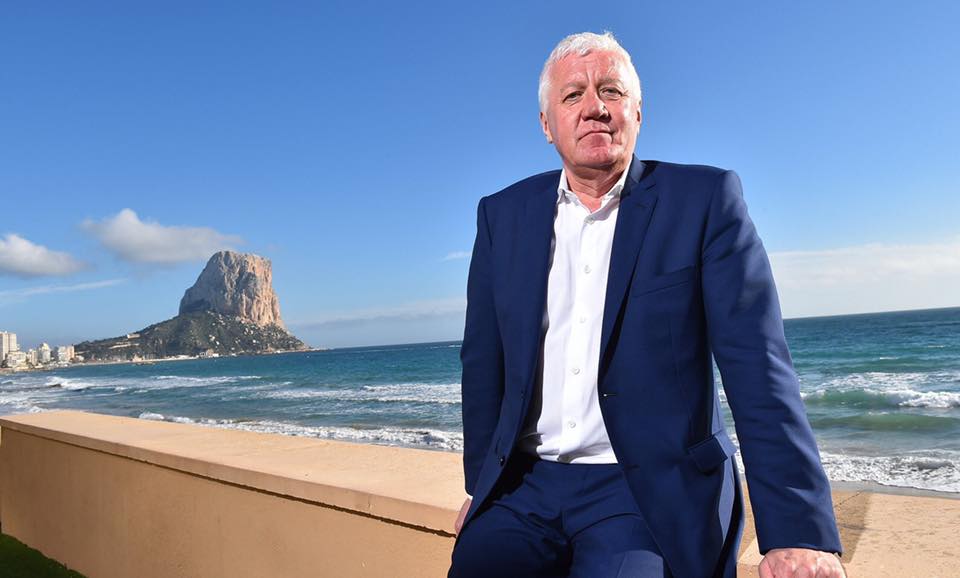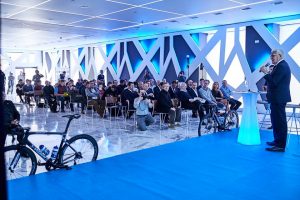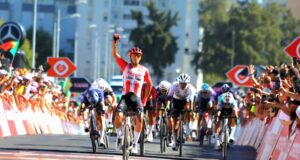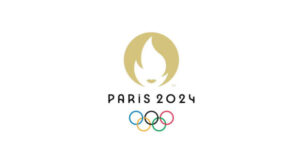Nicolás Van Looy / Ciclo21 – Enviado especial Calpe (Alicante)
El Old Fashioned, además de ser el cóctel preferido de Don Draper –protagonista de la recordada Mad Men– es, como su propio nombre indica, uno de los tragos que han sabido aguantar mejor el paso del tiempo. Ajeno a las modas y los vaivenes de los gustos cambiantes, el clásico a base de wiski, azúcar y amargo de Angostura sigue siendo uno de los favoritos en las barras de todo el mundo.
Patrick Lefevere (6 de enero de 1955, Moorslede, Bélgica) es algo así como el Old Fashioned del ciclismo. Lleva en esto desde siempre y puede ser tan amargo como dulce. Tan sentimental como despiadado. Tan apasionado como frío. Puede serlo todo y nada, pero nunca deja a nadie indiferente. Al belga, al menos en apariencia, le gusta su papel. Se deja querer. Sabe lo que le gusta al público y no duda en dárselo. Son ya incontables los años que, con el Peñón de Ifach de Calpe de fondo, presenta su nuevo proyecto anual. Sentado junto a su inseparable copa de (buen) vino tinto clava su mirada en el periodista. Ha cambiado de gafas, pero su mirada es la misma. Es un cazador que hoy se sabe la presa del periodista y eso le gusta. Para él, da la impresión, esto es un juego. Un baile. Así pues, bailemos.
– Es el primer año de una nueva etapa para Quick Step marcada, sin duda, por la ausencia de Tom Boonen, que ha sido el gran referente de la última década.
– Sabíamos que la fecha de la retirada de Tom iba a ser el 9 de abril. Todo el mundo sabe lo que él significaba para el equipo y para mí. Lo que más echo de menos, y espero no tener que hacerlo este año, es que cuando Tom estaba con nosotros, todo el mundo en el autobús estaba tranquilo. Conseguía que mi gente estuviese tranquila. La llegada de Philippe Gilbert es muy importante en este sentido. Me sorprendió que corredores con la experiencia de Stybar se acercaran a mí el año pasado para decirme lo buen compañero que era Phil. Los buenos consejos que da en carrera. Eso me sorprendió.
– En cualquier caso, la ausencia de Boonen le da al equipo un nuevo aire.
– Sí, pero recuerdo perfectamente la época de la retirada de [Johan] Museeuw. Todo el mundo decía que íbamos a caer en un agujero negro y Tom Boonen estaba ahí. Ahora es él el que lo ha dejado y hemos seguido ganando y ya hemos visto lo que Philippe es capaz de hacer, pero también Alaphilippe. Siempre tenemos esa imagen de que sólo somos capaces de ganar las carreras flamencas, pero dejamos de ser ese equipo hace mucho tiempo. Somos capaces de ganar de enero a octubre.
– ¿Cómo de importante fue el factor Tom en las dudas que surgieron alrededor de la continuidad del equipo?
– Todos sabíamos que la última carrera de Tom iba a ser la París-Roubaix. Pero yo soy una persona muy afortunada. Latexco lleva con nosotros 25 años, Quick Step, 20 años… estoy rodeado de gente en la que confío. El Dr. Van Mol está con nosotros 26 años; Wilfried Peeters, 25 años…
– ¿La marcha de Boonen no tuvo impacto alguno en ninguno de los actores involucrados en el equipo?
– ¡Claro que la tuvo! Ahora puedo ser sincero: él era muy importante, pero eso nunca se lo dije porque se habría encarecido demasiado. Es verdad que hubo un momento, hace años, que Quick Step me dijo que sin Boonen no habría patrocinio.
– ¿Cuán cerca estuvo el equipo de desaparecer el pasado mes de julio?
– En julio lo peor ya había pasado.
– Entonces, ¿cuán cerca estuvo el equipo de desaparecer en el peor momento de todo ese culebrón?
– No puedo darte una estimación, pero fue mucho más complicado de lo que pensé que sería. A veces, me decía a mí mismo ‘gilipollas, tienes 62 años y todo lo que deseas’. No soy rico, pero tampoco pobre. No puedo comer caviar todos los días, pero me gustan los espaguetis. Me preguntaba por qué me ponía en una situación tan estresante, pero entonces miras alrededor y ves a 75 personas a tu alrededor esperando acontecimientos. Es verdad que son los mejores del mundo y podrían encontrar hueco en otro equipo. No era eso lo que me preocupaba, pero ellos querían seguir juntos y eso me hacía sentir débil. Puede que hoy hayas oído demasiadas veces que somos una familia, pero no somos un grupo de gente que decimos que nos queremos y esas mierdas de cara a la galería. Aquí las cosas son de verdad. Quería mantener el equipo no tanto por mí como por ellos.
– En ese sentido, ¿qué supuso a nivel emocional el triunfo de Phil Gilbert en Flandes?
– Incluso a mis 62 años necesito tener retos. Le conozco desde que tenía 12 años y cada vez que nos sentábamos a negociar no nos encontrábamos. Entonces, un día me llamó. Él me llamó a mí y me dice: Patrick, quiero correr para ti. Le respondí que nuestra negociación podía ser muy corta: no puedo pagarte. Fue entonces cuando me dijo que para él ya no era una cuestión de dinero sino de ambición. Quería ganar Flandes, Roubaix y San Remo, los tres Monumentos que en aquel momento le faltaban y consideraba que nosotros éramos el único equipo que podía ayudarle. Nos necesitábamos. Le pedí que me mandara un email con su salario y su sistema de primas. Me satisfizo lo primero, pero no lo segundo. ¡He de decir que BMC paga muy bien a sus correrdores! [ríe]. Contesté a las once de la noche y a las ocho de la mañana me llamó y me dijo “tenemos un acuerdo”. Fue la negociación más corta y sincera de mi vida.
– Ha dicho que le gusta que le sorprendan. ¿Qué fue lo que más le sorprendió de Gilbert en 2017?
– Su ambición. Su motivación. Además, llegó al equipo con fama de egoísta, pero ha habido corredores como Stybar que me han dado las gracias por traerle. En la A Través de Flandes, con todos los respetos por Yves Lampaert, ves que si Gilbert hubiese querido, hubiese podido darle caza, pero no lo hizo. Una semana más tarde llega la Vuelta a Flandes. Ese día, si te llamas Philippe Gilbert, podías pedirle cualquier cosa a Lampaert porque, simplemente, te la daría.
– Cuando Gilbert se marchó en solitario tan lejos en esa Vuelta a Flandes, ¿pensó en algún momento que aquello no podía funcionar nunca?
– Para mí, el primer gran momento de esa carrera fue nuestro ataque colectivo en el Muro. Todo el mundo se reía y decían que estábamos locos. Pero fue el momento decisivo. Luego, en el Viejo Kwaremont, todos nos preguntábamos si era un suicidio. Sagan se fue al suelo y hay muchos que dicen –Van Avermaet así lo aseguró recientemente– que de no ser por eso hubiesen dado caza a Gilbert. Si mi tía tuviese pelotas no sería mi tía, sería mi tío.
– ¿Es Gilbert el último corredor de la vieja escuela?
– Sí, eso creo. El ciclismo ha cambiado mucho. Respeto mucho a los corredores jóvenes. Creo que lo tienen más difícil que antes. Tienen que sacrificarse más.
– Otro corredor de la vieja escuela podría ser Greg Van Avermaet, que caba contrato este año. ¿Hay alguna posibilidad de que levante el teléfono y le llame en agosto?
– Creo que será él quien me llame a mí. En primer lugar, no sé si querría correr con nosotros. En segundo lugar, es un corredor flamenco. El periodo de fichajes se abre el día 1 de agosto… ellos quieren tener su futuro arreglado el 1 de febrero. Antes de las clásicas. No tengo dudas sobre las cualidades de Greg, pero no sé si él podrá esperar lo suficiente para hablar conmigo o si yo podré presentarle un plan de futuro lo suficientemente pronto.
– Cambiando de tercio, ¿qué espera de Enric Mas esta temporada?
– Sé que tiene mucha calidad. Por desgracia, Alberto Contador le nominó como el próximo Contador. Es un honor, pero es un regalo envenenado.
– ¿Está de acuerdo con ese nombramiento?
– Es muy complicado. No me gustan estas cosas. Puedes decirlo si de verdad lo piensas, pero no deberías decirlo de un chico tan joven.
– ¿Piensa que Contador no lo pensaba?
– A todos nos gusta un poco de publicidad de vez en cuando. Era demasiado pronto para decir algo así. Es un regalo envenenado.
– ¿Qué espera de él?
– Que nos demuestre porqué le hemos contratado. Tiene las capacidades, pero ahora toca controlar mejor sus esfuerzos.
– ¿Y qué opina de Fernando Gaviria?
– Es un serial killer. ¡Tiene tanta hambre! Quiere ganarlo todo y a mí me encanta ese tipo de gente. Si hablas con él, te dirá que quiere ganar Flandes, Roubaix… Es mi labor la de mantener sus pies en el suelo y corregirle si comete errores. Sólo tiene 23 años. Puede tomarse su tiempo. Hay que enseñarle que no tiene que querer correr antes de saber andar, pero esa es la naturaleza de un sprinter. Es más rápido que Peter Sagan, pero no puedo garantizar que vaya a ser capaz de ganar las clásicas que él ha sido capaz de ganar, pero lo espero.
Old Fashioned. The favourite tipple of Mad Men star Don Draper. A cocktail that has withstood the passage of time. Tastes and trends come and go but this classic combination of whiskey, sugar and Angostura bitters remains popular in bars all around the world.
Patrick Lefevere (6 January 1955, Moorslede, Belgium) could be described as the Old Fashioned of cycling. A permanent fixture in cycling. He can be sweet or sour; sentimental or ruthless; passionate or cold-blooded; everything or nothing – but he always makes an impression, and seems to love every minute. A likeable guy. He knows what the crowds want and makes sure they get it. He’s been presenting his new annual projects against the backdrop of the Peñón de Ifach in Calpe for time immemorial. Sitting comfortably with his some decent red wine he looks intently at the journalist. New glasses but the same look in his eyes. A hunter revelling in the knowledge that today he’s being tracked by a journalist. He gives the impression that it’s all a game, a tango. So here we go, best foot forward…
– This is the first year of a new era for Quick Step characterised undoubtedly by the absence of Tom Boonen, an outstanding figure in the last decade.
– We knew Tom was going to retire on April 9th. Everyone knows how much he meant to me and the team. What I miss most, and I hope it doesn’t happen this year, is that when Tom was with us, everyone took it easy on the bus. He managed to keep my guys calm. Philippe Gilbert’s arrival is very important in this respect. I was surprised when cyclists as experienced as Stybar came up to me last year to say what a great teamie Phil was and what good advice he gives during a race. It surprised me.
– Either way, the team is different without Boonen.
– Sure, but I can remember perfectly when [Johan] Museeuw retired. Everyone said it was the end of the world but Tom Boonen was there. Now he’s the one who has left but we’ve carried on winning and we’ve seen what Philippe can do, and Alaphilippe too. We still give the impression that we can only win Flemish races but our team stopped being like that ages ago. We can win from January to October.
– How important was the Boonen factor regarding the doubts about the team’s continuity?
– We all knew that Tom’s last race was going to be Paris-Roubaix. But I’m a really lucky guy. Latexco has been with us for 25 años, Quick Step for 20… I’m surrounded by people I can trust. Dr Van Mol has been with us for 26 years; Wilfried Peeters, 25…
– Did Boonen’s retirement have much impact on anyone involved with the team?
– Yes of course! And now I can say it. He was really important but I never told him because he would have become too expensive. There’s no denying that at one point, years back, Quick Step said that without Boonen there’d be no sponsorship.
– How close did the team come to folding last July?
– By July we’d already got over the worst.
– So how close was the team to folding at the worst moment in all that mess?
– I can’t really say but it was far more complicated than I expected. I sometimes said to myself, “You’re an idiot, you’re 62 and you’ve got everything you need”. I’m not wealthy but I do ok. I can’t afford caviar every day but I like spaghetti. I would wonder why I let myself get into such a stressful situation. But then you look around and see 75 people waiting for things to happen. It’s true, they’re the best in the world and could get onto other teams so this didn’t bother me but they wanted to stay together and this made me feel weak. You’ve probably heard all too often that we’re a family but we’re not a bunch of guys who say we love each other and all that rubbish in public. It’s genuine here. I wanted to keep the team afloat – not so much for myself as for them.
– In this respect, how did you feel when Phil Gilbert won in Flanders?
– I’m 62 but I still need challenges. I’ve know him since he was 12 but whenever we sat down to negotiate we never struck a deal. Then one day he called me. He called me and said, ‘Patrick, I want to be on your team’. I said that negotiations might be very short, ‘I can’t afford you.’ But then he said that it was no longer a matter of money but ambition. He wanted to win Flanders, Roubaix and San Remo, the three milestones he had not yet achieved, and he thought we were the only team that could help him. We needed each other. I asked him to email me his wages and bonus system. I was ok with the wages but not the bonuses. I must admit that BMC pays their cyclists very well! [laughs]. I answered at 11 pm and he called me at 8 am and said, ‘It’s a deal’. The fastest, most honest negotiations I’d ever had.
– You once said that you like surprises. What surprised you most about Gilbert in 2017?
– His ambition. His drive. When he joined the team, he had a reputation for being selfish but guys like Stybar have thanked me for signing him. During the Across Flanders race, with all due respect to Yves Lampaert, Gilbert could have given chase if he’d wanted to but he didn’t. A week later it was the Tour of Flanders. On that particular day, if your name was Philippe Gilbert you could have asked Lampaert for anything because, quite simply, he would have given you it.
– When Gilbert opened up that huge gap alone in that Tour of Flanders, did you ever think it wouldn’t work?
– I think the first great moment in that race was when we all stormed the wall together. Everyone laughed and said we were mad. But it was a crucial moment. Then, on Old Kwaremont, we all wondered if we were suicidal. Sagan crashed and a lot of people said – as Van Avermaet did recently – that if it hadn’t been for this, they would have chased Gilbert. But if my aunt had balls, she wouldn’t be my aunt, she’d be my uncle….
– Is Gilbert the last ‘old school cyclist’?
– Yes, I reckon he is. Cycling’s changed a lot. I have a lot of respect for young cyclists. I think it’s harder for them now. They have to make more sacrifices.
– Greg Van Avermaet might be another ‘old school cyclist’. His contract ends this year. Any chance of you picking up the phone and calling him in August?
– I think it would be him calling me. First of all, I don’t know whether he would want to be on our team. Secondly, he’s a Flemish cyclist. The transfer period starts on August 1st and they want to have their future clear by February 1st before the spring classics. I have no doubt about Greg’s ability but I’m not sure he could wait long enough to talk to me or if I could present him with a plan for the future early enough.
– Changing the subject now, what do you expect from Enric Mas this season?
– I know he’s a great cyclist. Unfortunately Alberto Contador baptised him ‘the next Contador’ – an honour but also a poisoned chalice.
– Do you agree with Contador?
– It’s very complicated. I’m not keen on things like this. If someone really thinks so, they can say it out loud but they shouldn’t say it about such a young lad.
– Do you think Contador didn’t really think it?
– We all like a bit of publicity from time to time. It was too soon to say something like this. It’s a poisoned chalice.
– What do you expect from him?
– To show us why we’ve hired him. He’s talented but now he has to channel his efforts better.
– And what do you think about Fernando Gaviria?
– He’s a serial killer, always determined to win! He wants to win everything and I love that sort of guy. If you talk to him he’ll say he wants to win Flanders, Roubaix… It’s my job to keep his feet on the ground and correct him if he makes a mistake. He’s only 23. There’s no rush. It’s important to teach him that he doesn’t have to run before he can walk, but that’s what sprinters are like. He’s faster than Peter Sagan, but I can’t promise that he’ll win the classics that Sagan has won – but I hope so.
Translated by A. Barton de Mayor
 Ciclo21 Portal de ciclismo
Ciclo21 Portal de ciclismo





